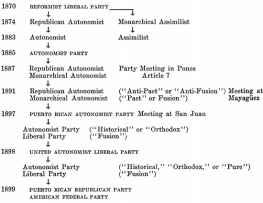1982 The University of North Carolina Press
All rights reserved
Manufactured in the United States of America
Library of Congress Cataloging in Publication Data
Cress, Lawrence Delbert.
Citizens in arms.
(Studies on armed forces and society)
Bibliography: p.
Includes index.
1. United StatesHistory, MilitaryTo 1900.
2. Civil supremacy over the militaryUnited
States. 3. United States. ArmyHistory18th
century. 4. United States. ArmyHistory19th
century. 5. United StatesMilitiaHistory18th
century. 6. United StatesMilitiaHistory19th
century. I. Title. II. Series.
E181.C83 973 81-15945
ISBN O-8078-1 508-X AACR2
Acknowledgments
Merrill D. Peterson directed this study from its inception, giving many hours of his time, countless insights into the problems of the early national period, and an example of professional excellence toward which to aspire. William W. Abbot read the manuscript in its earliest form and offered advice, direction, and encouragement as it progressed. Richard Kohn provided extensive and penetrating criticism at a critical juncture. His own work in the military history of the early republic and his eagerness to assist me in my work proved invaluable. Russell Weigley read an early draft of the manuscript and offered counsel and commentary that strengthened its final form. Brent Tarter, George Billias, and Theodore Crackel offered advice, criticism, and encouragement, as did Donald Jackson. Charles Royster read the final draft and suggested some important revisions.
The Alderman Library and the McGregor Collection at the University of Virginia proved invaluable for much of my research. Folger Shakespeare Library, the Humanities Research Center at the University of Texas, the Historical Society of Pennsylvania, the American Antiquarian Society, and the Maryland Hall of Records also provided willing assistance and service. An American Council of Learned Societies Fellowship provided me with eight months of uninterrupted time for researching and writing. Summer grants from the National Endowment for the Humanities and the College of Liberal Arts at Texas A&M University also allowed me to complete important segments of the research. The Society of the Cincinnati in the State of Virginia provided financial support during an early stage of the research. The History Department at Texas A&M University provided secretarial assistance. Carol Knapp and Mary Watson, under the supervision of Rosa Richardson, typed the manuscript.
My parents, Delbert H. and Faye E. Cress, helped in ways they probably do not realize. James Halseth, Peter Ristuben, and Arthur Martinson, all members of the history faculty at Pacific Lutheran University during my undergraduate days, have been an important source of moral support over the past fifteen years. Joseph and Marjory Hanson provided a home away from home on many a research trip to Washington, D.C. A long time ago, James Forsyth encouraged me. Donald J. Pisani did not read the manuscript, but he made writing it a more pleasant task. Linda helped most.
Introduction
This is a book about Americas early military history. It is not, however, concerned with the tactical, strategic, or administrative development of American military institutions. Rather, this is a study of ideology and policy. It examines the relationship between eighteenth-century perceptions of the military needs of a free society and the development of political policy intended to secure and preserve traditional English liberties in America. No one in the eighteenth century believed that a society could long endure without the means to preserve domestic order and guarantee external security. There was, however, considerable disagreement about how best to accomplish those ends. By their nature, military institutions held the power to destroy as well as to preserve; hence the character and composition of the military was an issue of major importance. For Americans, the issue evoked fundamental questions about the nature and viability of republican society.
First a word about ideology. Ideology can best be defined by its purpose or function. It serves to make facts amendable to ideas, and ideas to facts, in order to create a world image convincing enough to support meaningful explanations for social and political circumstances. An ideology integrates the assertions, theories, and aims necessary for linking particular actions and mundane practices with a wider set of meanings, providing a more explicit moral basis for an action or an attitude. This integration process may be consciously or unconsciously performed, but it is usually founded on real sociopolitical experience and is not the product of passive reflection.
Ideology is distinct from truth. An ideology is a coherent system of distorted ideas which purports to be factual and carries with it a more or less explicit evaluation of the facts. Ideology mobilizes public opinion by articulating and fusing into effective formulations opinions and attitudes that are otherwise too scattered and vague to be acted upon. It simplifies complex situations, allowing diverse groups and individuals to cooperate toward the same political and social goals. Distortions and simplification of fact, however, must ultimately be in tune with moral parameters which are linked to sources of social solidarity and political authority within a particular culture. Ideological constructs are not created; nor do they operate in a vacuum. The purpose or function of an ideological system is to provide a meaningful explanation for new or developing social or political circumstances. Its influence in a given political situation depends upon the ideologys ability to formulate, reshape, and direct forward moods, attitudes, ideals, and aspirations that in some form, however crude or incomplete, already exist within a society. Ideologies provide formulas for reacting to social or political strain by defining alternatives and providing justification for a particular course of action or attitude. In short, the role of ideology is to define a particular program as legitimate and worthy of support.
Partly because of its tendency to simplify complicated situations, ideology can suggest something of the internal unity and intellectual foundations of a given social system. Expressed in literary and legislative forms, ideology can provide the historian with ideas about the character of a particular society, as well as insights into events taking place within it. Care, however, must be taken to separate ideological axioms from policy alternatives and other political behavior produced by the defining function of ideology. The failure properly to make this distinction confuses ideology with the dependent political behavior that it purports to explain or influence. Unless the analysis of ideology reaches the central value system of a political process, any attempt to explain political behavior within a given historical context will be misconstrued. The link between policy and ideology depends upon an analysis of legislative or policy alternatives within the context of their intellectual antecedents. This allows the influence of ideology in the decision-making process to be determined and opens the way for understanding particular policy decisions within a broader intellectual context. Insights are also possible into evolving ideological systems developing in response to efforts to find new explanations and solutions to changing circumstances and conditions.
An understanding of American attitudes toward the military during the revolutionary era rests upon a careful distinction between ideology and dependent political behavior. This study argues that the controversy over the military in American society is understandable only within the larger context of eighteenth-century republican ideology. The often repeated charges that standing armies were a threat to civil liberties, which were leveled against both British and American regular troops between the Seven Years War and the War of 1812, do not represent a fundamental antimilitaristic strain in American culture. Nor, for that matter, can policies and attitudes toward the military be understood simply as a belief that military power and civil liberties were incompatible. Analyzed within the atmosphere of ministerial conspiracy, moral corruption, and political oppression that permeated republican thought before 1775, the American response to the British military presence becomes part of a broader concern about constitutional balance, local political prerogatives, and the moral quality of American society. In many ways, the issue of the British military presence itself was secondary to that of what that presence indicated about the moral and political condition of American society.




